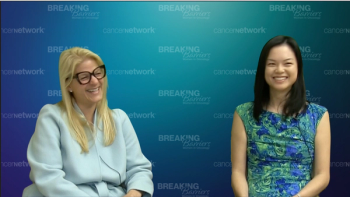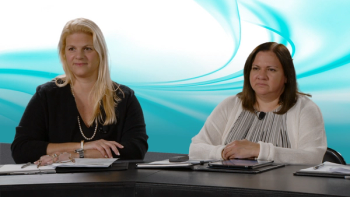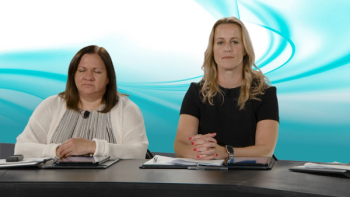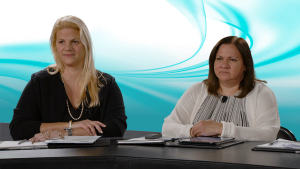
The field of breast oncology is constantly evolving to include trial diversity and multidisciplinary care.

Your AI-Trained Oncology Knowledge Connection!


The field of breast oncology is constantly evolving to include trial diversity and multidisciplinary care.

Tiffany A. Traina, MD, and Sherry Shen, MD, discussed barriers they have had to overcome throughout their oncology careers.

Thought leaders in breast oncology share closing remarks about the future management of HER2+ BC with brain metastases with key insights on unmet needs and evolving treatment approaches.

Expert panelists discuss insights on HER2+ BC from the 2022 ASCO Annual Meeting including safety updates from DESTINY-BREAST03, data on the potential prognostic value of TILs, and trials on local therapy for oligometastatic disease.

A panel of experts examines the challenges associated with treating leptomeningeal metastases in patients with HER2+ mBC including difficulties with using intrathecal chemotherapy and radiation therapy.

Rita Nanda, MD, reflects on the use of systemic treatment with tucatinib in patients with visceral and CNS disease, and Ryan Jones, MD, discusses the evolving role of concurrent systemic therapy with radiosurgery.

Highlighting the clinical scenario of a 29-year-old woman with breast cancer, Tiffany Traina, MD, leads a discussion on challenges associated with accurate biomarker testing, tumor heterogeneity, and repeat biopsies.

Key opinion leaders in the management of breast cancer discuss the role of the radiation oncologist in treating patients with brain metastases.

Centralizing the conversation on trastuzumab deruxtecan, panelists comment on treatment toxicity and factors to consider when sequencing therapies in later lines of treatment.

To discuss treatment options beyond the frontline setting, Erika Hamilton, MD, presents the clinical scenario of a 43-year-old woman with HER2+ mBC who progressed on paclitaxel/trastuzumab/pertuzumab.

Ryan Jones, MD, reflects on factors to consider when selecting stereotactic radiosurgery vs whole-brain radiotherapy including performance status, extracranial control, number of lesions, and CNS progression.

A panel of experts discusses factors to consider when selecting treatment for patients with HER2+ mBC including brain metastases, quality of life, and treatment resistance.

Focusing discussion on the first clinical scenario, panelists examine currently available first- and second-line treatment approaches for HER2+ mBC.

Rita Nanda, MD, leads a discussion of the first clinical scenario, a 41-year-old woman with HER2+ metastatic breast cancer who progressed on docetaxel/trastuzumab/pertuzumab.

To begin the program, an expert panel of leaders in the management of HER2+ metastatic breast cancer provides an overview of the disease landscape.

Tumor angiogenesis, an important step in breast cancer development, invasion, progression, and metastasis, is regulated by the expression of proangiogenic factors such as vascular endothelial growth factor (VEGF).[1-6] Higher levels of VEGF expression are associated with poor clinical outcomes and decreased survival in patients with breast cancer.

Published: July 6th 2022 | Updated:

Published: July 27th 2022 | Updated:

Published: July 13th 2022 | Updated:

Published: June 29th 2022 | Updated:

Published: June 29th 2022 | Updated:

Published: July 20th 2022 | Updated: